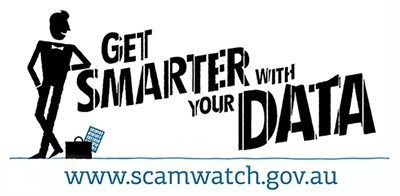21 May 2015
National Consumer Fraud Week 18 - 24 May 2015
 Angus McLauchlan • Security
Angus McLauchlan • Security Are you keeping your private information secure? Chances are you could be leaving it wide open for scammers to use for fraudulent purposes. Identity theft is now one of the most common crimes in Australia, and can lead to all sorts of associated illegal activities.
Are you keeping your private information secure? Chances are you could be leaving it wide open for scammers to use for fraudulent purposes. Identity theft is now one of the most common crimes in Australia, and can lead to all sorts of associated illegal activities.
During Fraud Week 2015, the Australasian Consumer Fraud Taskforce is urging Australian consumers and businesses to get smarter with their data and keep it out of the hands of scammers.
Follow SCAMwatch’s top 6 ‘protect yourself’ tips to leave scammers out in the cold
Keep your personal details secure Your postal mail and your online presence are the first place a scammer will look to piece together your details. Lock your mailbox, and shred your bills and other important documents before throwing out. Be careful sharing information about yourself online, including social media, blogs and other online forums.
Think twice about what you say and do in an online environment Whilst there are times when your personal details are required for legitimate reasons, such as signing up to a new service or buying something, always check that the person or organisation is who they say they are. Stop and think before filling in surveys, entering competitions, clicking on links or attachments, or even ‘befriending’, ‘liking’ or ‘sharing’ something.
Keep your mobile devices and computers secure These are a treasure trove of personal information for scammers. Don’t leave yourself vulnerable to a scammer – always use password protection, don’t share access with others (including remotely), update security software and back up content. Protect your Wi-Fi network with a password and avoid using public computers or Wi-Fi hotspots to access online banking or provide personal information.
Choose your passwords carefully Passwords are often the only barrier between scammers and your valuable information. Set and use strong passwords which are difficult to guess, and change them regularly. A strong password should include a mix of upper and lower case letters, numbers and symbols. Don’t use the same password for every account/profile, and don’t share your passwords with anyone.
Beware of any request for your details or money Scammers will try to trick you into handing over your data by using the names of well-known companies or government departments. If you think it’s a scam, DON’T RESPOND. Use the phone book or an online search to check the organisation’s contact details. NEVER use the contact details provided in the original request.
Get a copy of your free credit report Your credit report contains information on your credit history. You can get a free copy of your report every year to check that no-one is using your name to borrow money or run up debts. Find out how you can get your free credit report on ASIC’s MoneySmart website.
If you think your banking details have been misused, you should contact your bank or credit union immediately to let them know. You should also contact iDcare - a free government-industry service which works with you to develop specific response plans to your situation to reduce risk and impact. Visit the iDcare website or call 1300 IDCARE (432273).
Source: https://www.scamwatch.gov.au